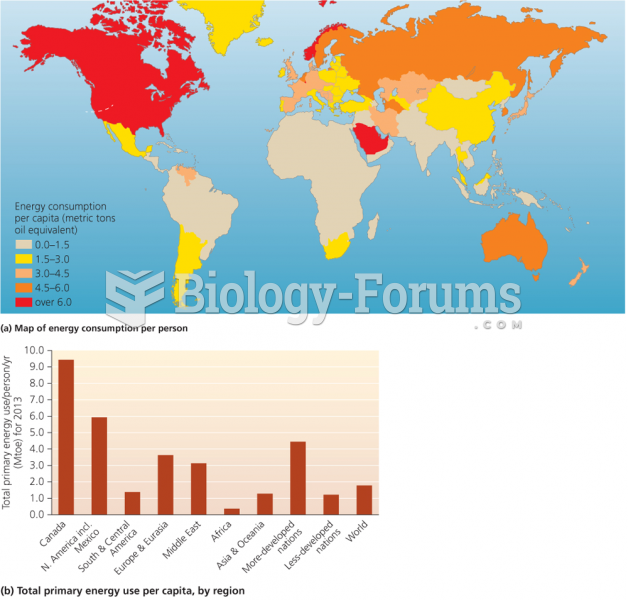|
|
|
Everyone has one nostril that is larger than the other.
Never take aspirin without food because it is likely to irritate your stomach. Never give aspirin to children under age 12. Overdoses of aspirin have the potential to cause deafness.
GI conditions that will keep you out of the U.S. armed services include ulcers, varices, fistulas, esophagitis, gastritis, congenital abnormalities, inflammatory bowel disease, enteritis, colitis, proctitis, duodenal diverticula, malabsorption syndromes, hepatitis, cirrhosis, cysts, abscesses, pancreatitis, polyps, certain hemorrhoids, splenomegaly, hernias, recent abdominal surgery, GI bypass or stomach stapling, and artificial GI openings.
The average human gut is home to perhaps 500 to 1,000 different species of bacteria.
For high blood pressure (hypertension), a new class of drug, called a vasopeptidase blocker (inhibitor), has been developed. It decreases blood pressure by simultaneously dilating the peripheral arteries and increasing the body's loss of salt.
 In the summer of 1793, a yellow fever epidemic struck Philadelphia, killing nearly 4,000. Tens of th
In the summer of 1793, a yellow fever epidemic struck Philadelphia, killing nearly 4,000. Tens of th
 Vice President Richard M. Nixon and Soviet leader Nikita Khrushchev engage in a “kitchen debate” ...
Vice President Richard M. Nixon and Soviet leader Nikita Khrushchev engage in a “kitchen debate” ...
 A seemingly anonymous well-wisher from the crowd greets President Bill Clinton. When Clinton was ...
A seemingly anonymous well-wisher from the crowd greets President Bill Clinton. When Clinton was ...




